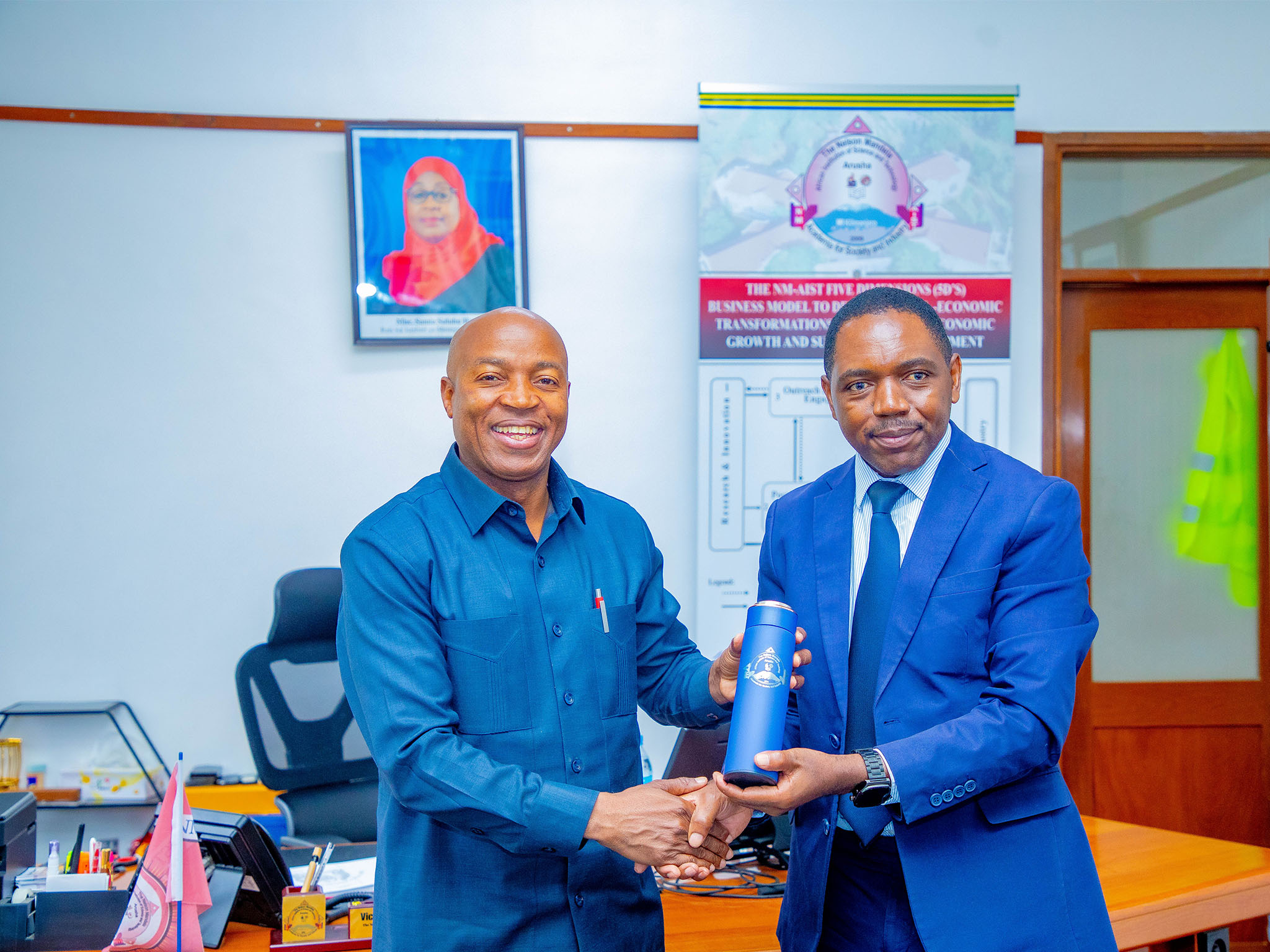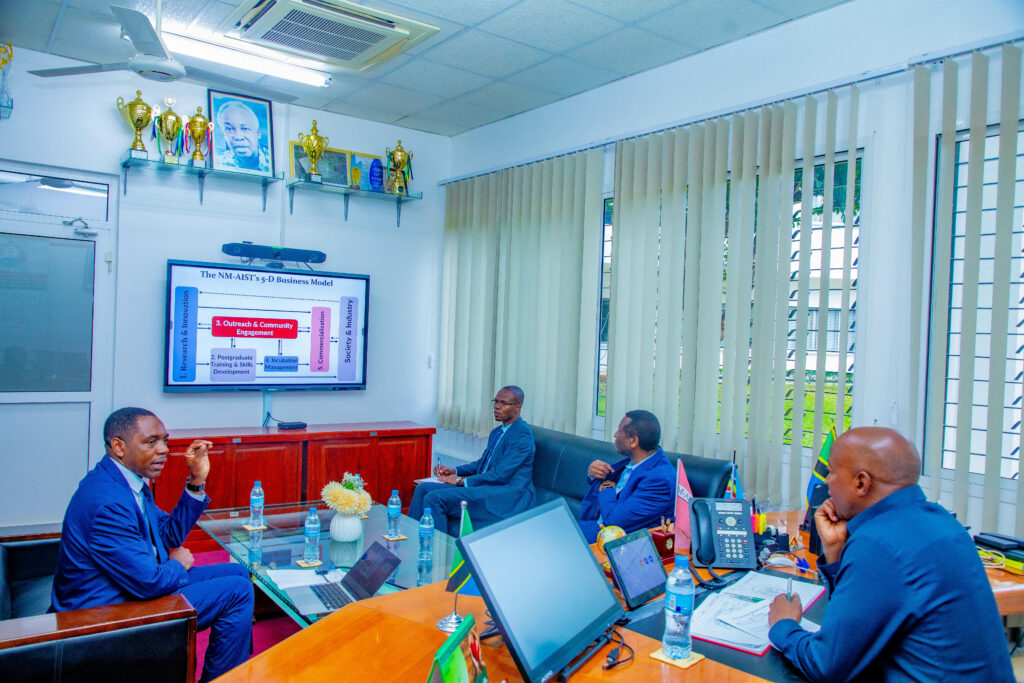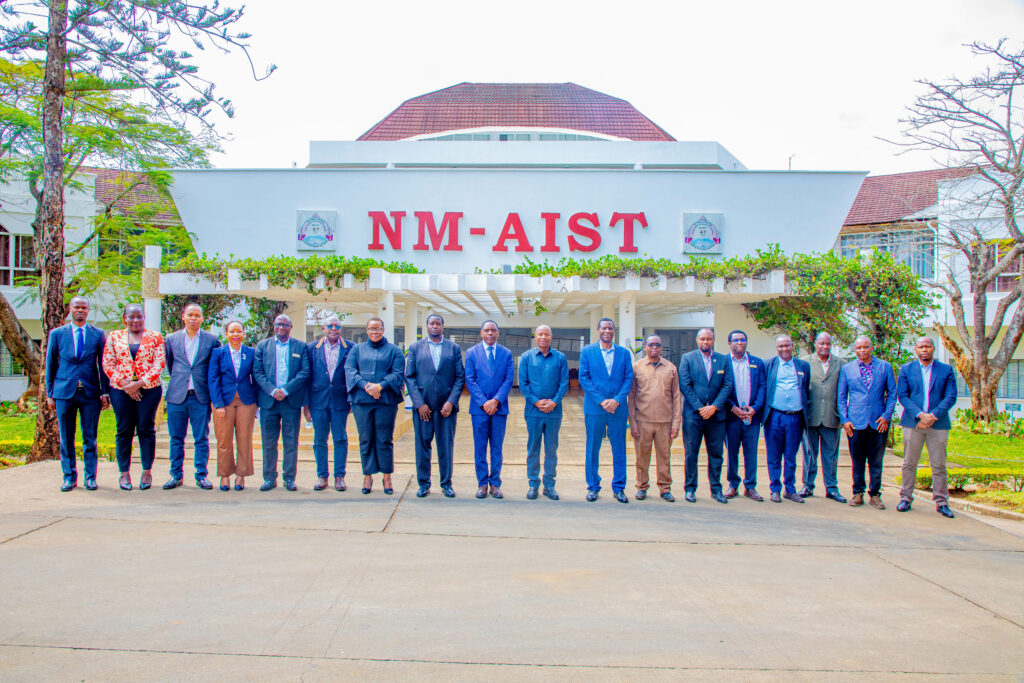
The Deputy Minister of Foreign Affairs and East African Cooperation, Hon. Cosato Chumi, has urged councils across the country to learn and utilize technology for processing waste into fertilizer, in order to improve waste management, assist farmers, and increase employment opportunities for youth, women, and people with special needs through production groups.
Speaking on August 13, 2025, during a visit to the Nelson Mandela African Institution of Science and Technology (NM-AIST), Hon. Chumi said councils can use 10% of government funds allocated to special groups to establish groups that will use this technology as part of development projects.

“This fertilizer made from waste is an important resource for farmers and also an employment opportunity for citizens, while helping councils address waste management challenges,” Chumi emphasized.
He added that innovations and research from NM-AIST should reach member countries of the East African Community and SADC through foreign policy, especially economic diplomacy.
Furthermore, Hon. Chumi explained that his ministry will collaborate with Tanzanian ambassadors abroad to help the institution attract international students and experts, to enhance research quality and spread innovations beyond Tanzania’s borders.
He also encouraged the institution to fully participate in international science and technology exhibitions so that the innovations produced can be recognized and accepted in global markets.

On his part, Vice Chancellor of the institution, Prof. Maulilio Kipanyula, said NM-AIST focuses on research and innovation aimed at solving challenges facing the African continent, and recently the institution received an award for being the leader in copyright registration in the country.
“That award shows that our research is of high quality and has market potential. We need strong collaboration from the Ministry of Education, Science and Technology and the Ministry of Foreign Affairs to enable these innovations to reach their intended beneficiaries,” said Prof. Kipanyula.
The institution has become a model for how to collaborate with various sectors to ensure that research and innovation are directly applied in community service and industrial development.





 Visit Today : 1578
Visit Today : 1578 Visit Yesterday : 1776
Visit Yesterday : 1776 This Month : 3354
This Month : 3354 This Year : 122843
This Year : 122843 Total Visit : 810109
Total Visit : 810109